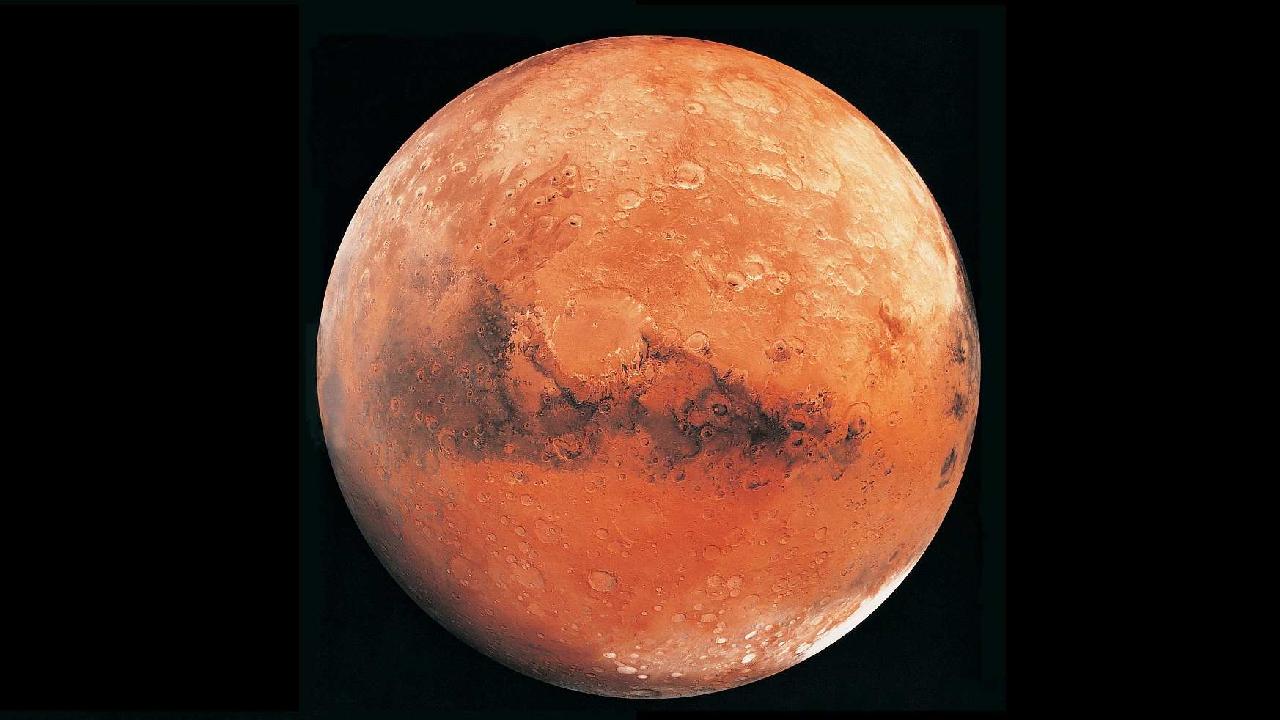Ancient signs of warm water indicate Mars was habitable early on
Researchers have discovered the earliest direct evidence of hot water activity on Mars, shedding light on the planet's potential for supporting life.

A team of researchers from Curtin University examined a zircon grain that is 4.45 billion years old, sourced from the Martian meteorite known as "Black Beauty" (NWA 7034), which was found in the Sahara Desert in 2011. Their findings, published in "Science Advances" on Saturday, indicate that hydrothermal conditions existed on Mars during the formation of its early crust, conditions that could have fostered life.
Through high-resolution microscopy and geochemical analysis at the nanoscale, the team identified chemical zoning patterns and magnetite inclusions within the zircon grain. These characteristics are indicative of minerals formed in the presence of water-rich fluids, suggesting that the Martian crust engaged with hydrous fluids during the Pre-Noachian period, over 4.1 billion years ago. Hydrothermal systems are known to provide heat and nutrients, which are vital for life, pointing to the possibility that ancient Mars had habitable environments.
Aaron Cavosie from Curtin University remarked that their research unveiled signs of hot water on Mars 4.45 billion years ago. He noted that despite meteorite impacts shaping Mars' early history, the presence of water may have created life-supporting environments.
Additionally, the study indicated that these hydrothermal systems were associated with strong remnant magnetization found in the Martian crust, hinting at a geodynamo during the planet's early history. These systems are essential for understanding Mars' surface hydrology and deep structure.
The characteristics of the zircon grain are reminiscent of terrestrial zircons formed in water, suggesting that early in its history, Mars' crust experienced wet and dynamic conditions. This discovery complements earlier observations of river-like landforms and clay minerals in the Noachian crust, pushing the evidence of water activity back to the very beginnings of the planet's crust formation. It raises the intriguing possibility that habitable conditions on Mars may have existed even earlier than those on Earth.
Lucas Dupont for TROIB News
Discover more Science and Technology news updates in TROIB Sci-Tech












